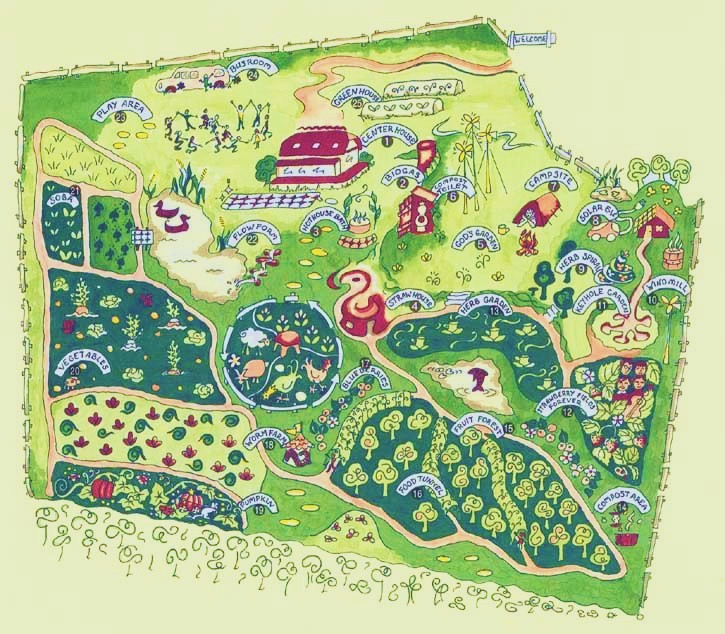
Life Should Be Cooperative, Not Competitive: Permaculture, Design, and Economics
 In the economy we have constructed, more importance is placed on the invented world of products and currency than on the real, natural world. In this system our value as humans is determined by how much stuff we have. But no natural systems function this way. Natural systems do create greater abundance as they develop, but they do not hoard it; rather they use it to sustain more life. Nature wastes nothing, and neither should we.
In the economy we have constructed, more importance is placed on the invented world of products and currency than on the real, natural world. In this system our value as humans is determined by how much stuff we have. But no natural systems function this way. Natural systems do create greater abundance as they develop, but they do not hoard it; rather they use it to sustain more life. Nature wastes nothing, and neither should we.
Life should be cooperative, not competitive. The commonly used phrase “survival of the fittest” is actually a mis-quote of Charles Darwin made by a military general, implying that the last species standing ‘wins’ somehow. What Darwin actually said was, “survival of the fit”. He meant that those organisms best adapted to their environment are the ones that survive over the long haul, and adaptation is achieved far more often by cooperation than competition. More often than not competition wastes energy to no useful end while cooperation harnesses the energy of many individuals for the benefit of the group as a whole.
The above passages come from the free ebook titled Regenerative Permaculture Design: a Beginner’s Guide to Designing a Truly Livable World, by Saundra Wolfe. The book is a great introduction to the underlying philosophy and principles of permanent agriculture (Permaculture). There are many things I like about this approach to agriculture, especially the economic critique exemplified above, but as a designer I’m also really interested in Permaculture as a system of design. I’ve always felt that as a designer my job is to bring existing pieces together, or organize them, in a harmonious way. Permaculture, as a design system, is doing the same thing:
“Permaculture is a design system that attempts to integrate fabricated, natural, temporal, social and ethical components into a pattern which functions to benefit life in all its forms.”
The ebook was published by openermaculture.com and you can download the free ebook here.
…
Illustration above found on Pintrest
0 Comments